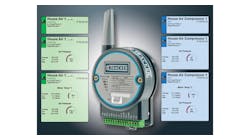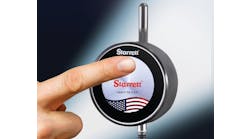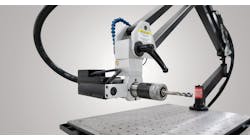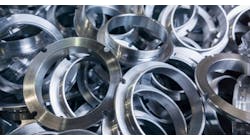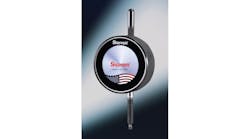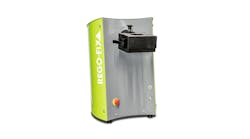With the economy slowed, enrollment is picking up at the Moraine Park Technical College Advanced Manufacturing & Technology Center (AMTC) in West Bend, Wis. Students want to gain the skills that could land them jobs in high-tech, Lean Manufacturing shops, or that would make them more valuable to their current employers.
AMTC offers 2-year degrees in CNC Manufacturing and Tool & Die Manufacturing. “One of the things that we preach is that the more skills a person can bring to the table the fewer reasons a company will have for letting them go in a down economy,” instructor Tim Clemens said.
One way the school helps its students become more versatile, and thus more valuable, is to integrate inspection training with course work in CNC Programming, GD&T (Geometric Dimensioning and Tolerancing), and Tool & Die Manufacturing. For example, in the CNC programming course, students must write about 11 increasingly difficult CNC manufacturing programs for mills and lathes. Then, they check their work on a Brown & Sharpe DCC CMM (direct computer control coordinate measuring machine) with PC-DMIS measurement software.
The programs show the students what they did right or where they went wrong. As they assess their progress as CNC programmers, they learn CMM basics. Later, they’ll learn to write their own CMM programs in PCDMIS, and their familiarity with the equipment will place them ahead of the curve.
Moraine Park’s three DCC CMMs (at its two campuses) and the software were acquired as part of the Hexagon Metrology Metrology Equipment Grant program. It helped Moraine Park acquire the equipment and software at affordable terms, and the school receives technical assistance from Brown & Sharpe sales engineer Rick Schaeffer.
Clemens spends a great deal of time on essentials in his introduction to CMM Programming class. “Before students can move to writing a fully automated DCC program, they have to really understand how to calibrate probes correctly and how to do proper alignments. Without these skills, you’ll never get good measurements,” he said.
Recently, AMTC began incorporating CMM surface scanning into the curriculum. Clemens was given a grant to study the subject at a local shop, RAM Tool & Die. He worked with one of RAM’s programmers to learn to write measurement programs using both touchtrigger and laser probes to check curves and surfaces. At present, Clemens teaches students scanning with a touch probe, and the college hopes to acquire a vision probe for teaching more advanced applications.
Does broadening the students’ base of skills with CMM training actually make them more marketable? Clemens is sure of it. In fact, several of his students in recent years have found work as CMM operators and programmers, and many more are employed by shops that recognize that a greater understanding of quality standards will earn more profitable business.
